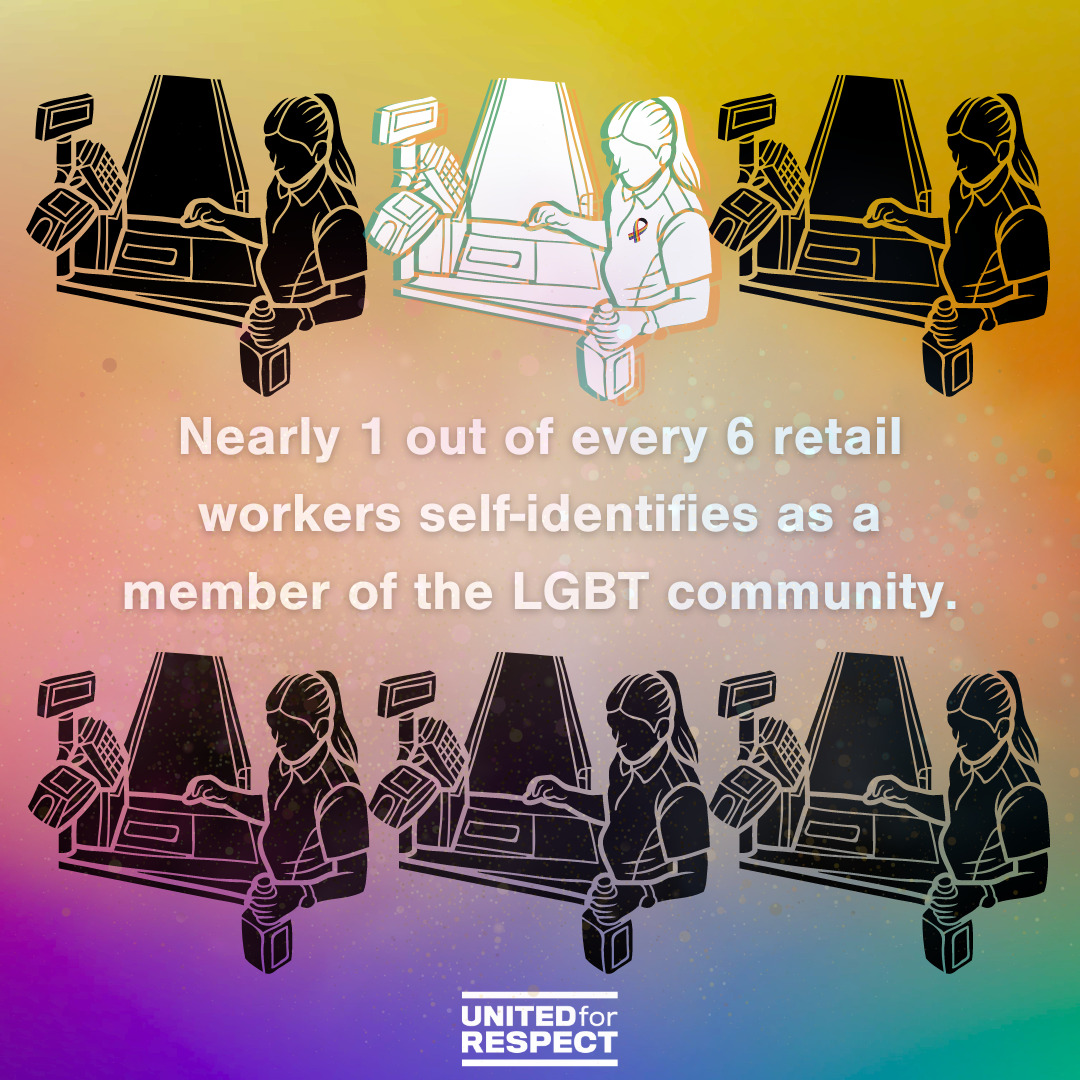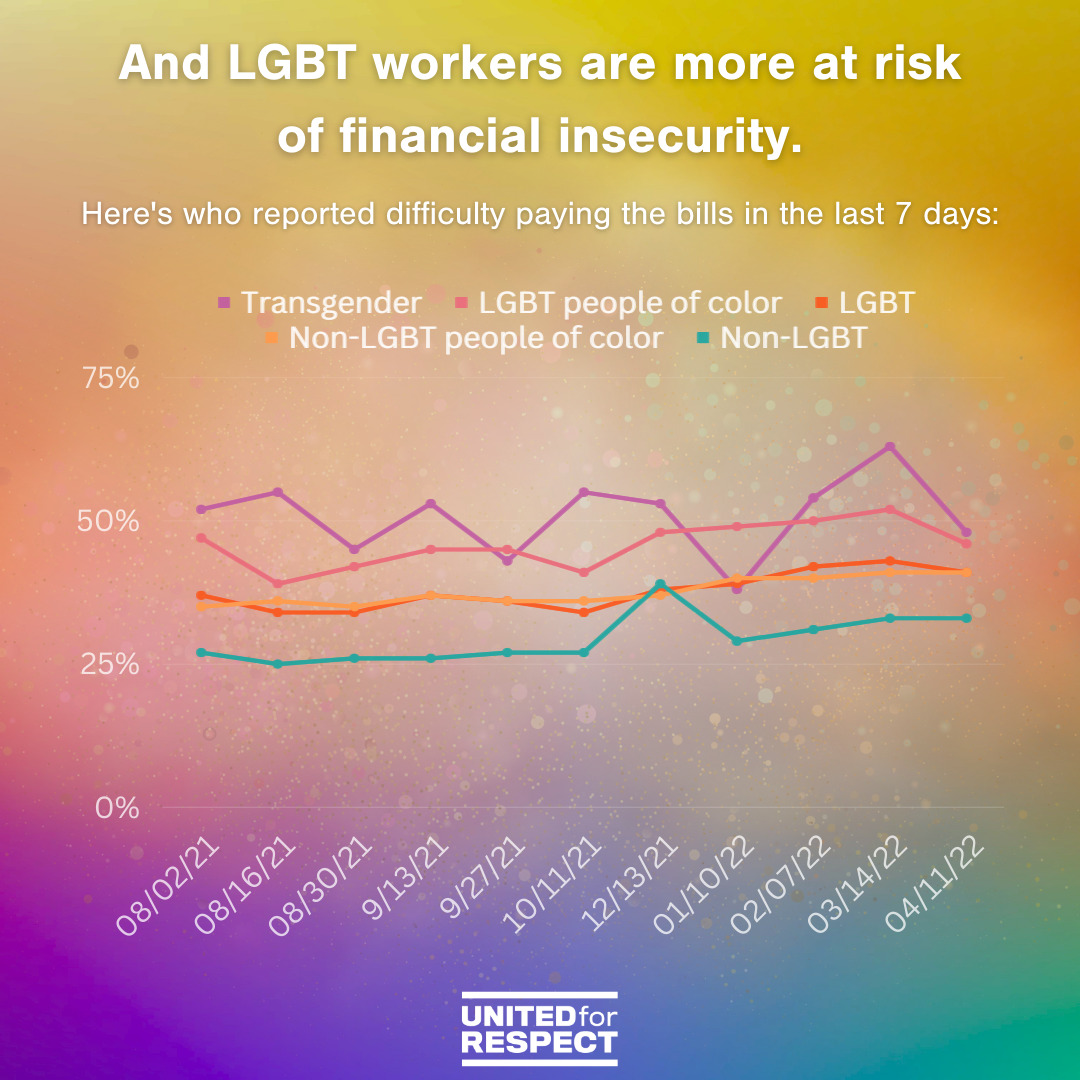For years, retailers have capitalized on the popularity of Pride, filling their aisles with rainbow goods during the month of June. But in 2023, Target backtracked, deciding to remove some of its Pride displays in response to attacks from right-wing ideologues.
In a political climate where the rights of the LGBTQI+ community are increasingly under attack (there have been almost 500 anti LGBTQI+ bills as of June 2023 in the U.S.), the decision to remove the displays was criticized as a concession to hateful extremists. And while Target claimed the decision was partially based on the need to prioritize employee safety, many LGBTQI+ Target associates took to the internet to disagree and express their sense of betrayal.
LGBTQI+ workers have long been an important part of the retail industry, but recent data from the U.S. Census Bureau provide a clearer picture than ever before of just how essential they are. As of May 2023, there were an estimated 1.77 million retail workers that self-identify as Lesbian, Gay, Bisexual, and/or Trans. That means that over 16% of retail workers, or 1 in 6, self-identified as part of the LGBT community, compared to 10% of the total working population.

This makes retail one of the most common jobs for LGBT workers. In fact, retail is behind only the healthcare industry in terms of number of queer employees. And in terms of percent of the workforce that identifies as LGBT, retail is behind only the ‘Arts, Entertainment, and Recreation’ and the ‘Accommodation and Food Services’ industries.
Additionally, as the Transgender community faces increasing right-wing attacks across the country, it’s important to recognize and fight for the 275,000 Trans workers in the retail industry.
While many retail workers confront the difficulties of wages that aren’t keeping up with prices, LGBTQIA+ workers may face additional economic challenges. Between employment discrimination and workforce exclusion, queer workers have higher rates of poverty and unemployment. And Census data shows that LGBT households were more likely to make under $25,000 and have difficulty paying household expenses. Additionally, LGBTQIA+ workers of Color and LGBTQIA+ workers with disabilities face compounded discrimination and were found to face even greater economic insecurity.

The decision by Target to remove some of its LGBTQIA+ displays ahead of Pride Month sparked controversy and raised concerns about the industry’s commitment to the LGBTQIA+ community. In a time where the rights of this community are increasingly under attack, such concessions to hateful extremists betray LGBTQIA+ retail associates.